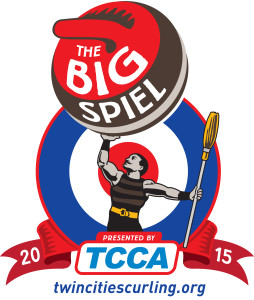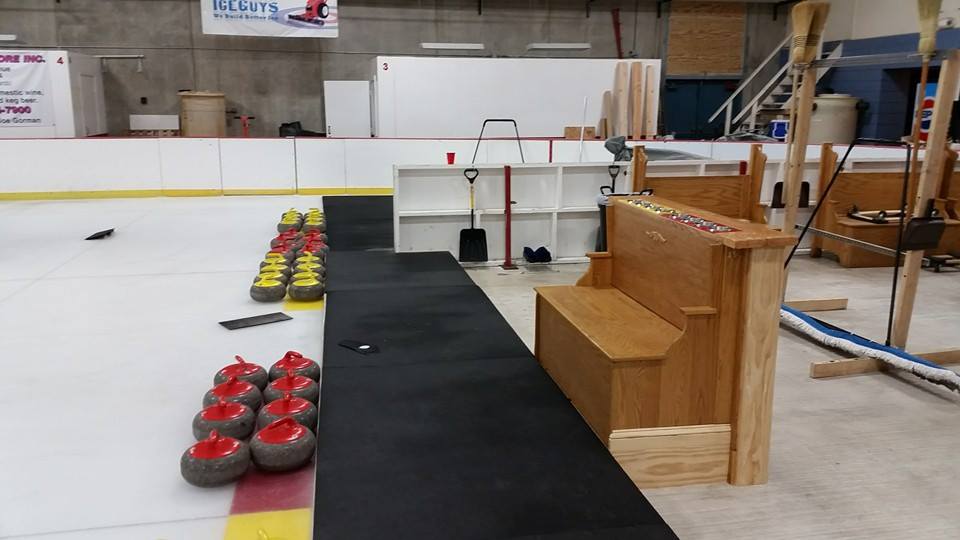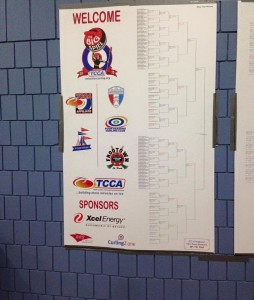You guys remember curling, right? You know, that quirky sport you only think about every four years during the Winter Olympics? Well I’m sneaking it back into your collective consciousness during non-peak hours. This weekend I’m competing as a last minute sub in The Big Spiel, a ninety-six team curling tournament held in the Twin Cities.
You already know what Big means, a movie starring Tom Hanks, but you might not know what a Spiel is. Spiel is short for bonspiel and is often defined as a drinking tournament interrupted by curling. Its origins as a word are disputed as being either Gaelic or Germanic, but linguists can all agree that it’s a rather jaunty word to say.
The Big Spiel is a four day event organized by the Twin Cities Curling Association where teams from as far away as Texas (nothing says a winter vacation like a -23 wind chill) and Canada (closer than Texas) curl at three Twin Cities clubs: the venerable Saint Paul Curling Club, the high-performance Four Seasons Curling Club and my home away from home, the Frogtown Curling Club. Each club has its own personality and frame it with a Faber College metaphor, Saint Paul is Omega Theta Pi, Frogtown is Delta Tau Chi and Four Seasons is the Administration (I’m totally kidding, you guys. Don’t put me on double secret probation). As each club is unique and special in many ways, it gives local curlers an opportunity to experience throwing rocks and socializing at each location and gives out of town teams a chance to measure themselves against the competition in a hotbed (coldbed??) of American curling, Saint Paul, Minnesota.
Bonspiels are a little different than most adult recreational sports contests. Unlike other sports, you might have an opportunity to test your curling mettle by going up against a current or former Olympian or national curling champion (imagine showing up at a softball tournament and having to pitch to Joe Mauer) and you get to test your emotional strength by getting absolutely clobbered by that champion. Also, bonspiels are self-policing when it comes to determining talent level. Typically teams estimate their skill level during the signup process which often leads to teams playing down to win or overestimating their talent and going home with some losses and orange slices as consolation. At a bonspiel, it’s different.
Instead of single or double elimination, bonspiels have a game guarantee. For The Big Spiel (and yes, I do say it like THE Ohio State University), it’s a four game guarantee, while for less massive spiels it’s typically three games. As you win or lose in the first three games of the Big Spiel, you move into different Events. If my team wins our first game, we stay in the Event A bracket, and if we lose, we move to Event B. Losing the second game might drop us to Event C, and so on. After three games, you have all of the 3-0 teams in one Event, all the 0-3 teams in another bracket and so on a so forth for each permutation of results (this feels a lot like math, but I promise it isn’t). Now that the teams are sorted into some sense of skill level, game four becomes essential for survival. Everyone who wins that fourth game stays in the bracket and everyone who loses is out. So yes, you could be 3-1 and you are metaphorically golfing with a team that is 0-4. The rest of the way out, it is single elimination. Until you have winners for each Event—in this case eight teams will have a chance to compete for an event title. It keeps it interesting for less experienced curlers and lets you know how you stack up. The guarantee games are completed by Saturday night which means the goal for nearly all curlers is to play on Sunday.
Even if you don’t make it to Sunday, there is still breakfast to be chewed and beer to be swallowed which also means that once you lose at a bonspiel, it never really means you are out. As bonspiels are as much a social event as they are a curling tournament, there’s plenty of opportunity to share in the fun even after you are eliminated. You entry fee did help buy the kegs, and they aren’t going to drink themselves.



